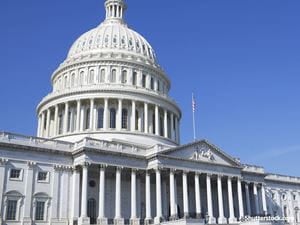
There is nothing that defines us as human so much as free will.
It is our birthright, exercised from the very first time we’re able to form the word “no”. And it is curtailed, for the first time, when that same word is thrown back at us.
Life is a careful balance between the exercise and limitation of the will. Ideally, each individual lives to pursue their own happiness, but without inhibiting the pursuits of others. At best, each person actually helps others in these endeavors, creating a web of pursued happiness that elevates the whole of society.
But ours is not an ideal world.
The will is sometimes not limited when it should be, and even more often, it is unfairly limited when it should be free.
The latter issue looms as the latest presidential election draws near. The biggest contributors?
Misuse of Data, buzzwords, and misinformation.
These are the impediments we’ll all be facing in our quest to exercise our free will—impediments which give us an illusion of choice, while simultaneously taking that choice away. But knowledge is power, and power grants control. So let’s take a look at these issues and take back a measure of voting freedom.
The Truth Isn’t Always True
Data seems straightforward. It’s merely raw information, after all, and information is reality, right?
Well, not quite. Information is a tool, and like any tool, it can be used in a variety of ways.
Think on this. Clear Channel Outdoor Americas has partnered with AT&T to produce billboards capable of tracking people’s travel patterns through their mobile devices. They’ll know where you go, and combined with other ways in which you use your device, will likely know why, as well.
So if a company knows that a majority of people enjoy traveling to cafes in the evening to order a nice cup of earl grey tea, you may soon see a politician doing that very thing in a commercial, in order to foster a sense of familiarity and encourage an “ah, they’re just like us” moment.
Data is used not only to track our physical actions, but to manipulate our emotions, as well. For one week in January of 2012, Facebook performed an experiment in emotional string-pulling.
In this experiment, which encompassed about 700,000 users, some users were had their feeds manipulated so that only the most positive content and words were given priority. Others were blasted with negative content and keywords. Facebook did this not by manipulating content, but simply by omitting the positive or the negative. They still showed the truth—the same news articles, the same posts and words that were true to their sources— but only showed the truths which would lead users to feel a certain way.
By the end of the week, Facebook had analyzed the results; these manipulated users had much higher incidences of posting correspondingly negative or positive keywords. Facebook had purposefully taken over their emotions. And that emotion was contagious. Emotional posts begat similarly emotional posts amongst friend groups.
Be aware that the truth can be used in a deliberately misleading way. Just because a certain set of numbers are thrown onscreen, or because certain narrative are highly visible doesn’t mean that there isn’t more to be investigated. Scientists, as Ian Malcolm, the fictional chaos theorist of Jurassic Park fame says, are “so preoccupied with whether or not they could, they didn’t stop to think if they should.”
Always be willing to learn and look at both sides of an issue, and you’ll have the information you require to truly exercise your free will and choose.
Buzzwords Oversimplify Our Lives
In election seasons, buzzwords are a plague. They’re labels—bigot, communist, liar, xenophobe, criminal, presidential, and so on. If you’re a supporter of one party, you’re a “moron,” and if you support the other, you’re an “idiot”. People are defined as “terrifying, scary,” or “chilling”.
Here’s a tip: disregard any single word that claims to encompass the entirety of a person or organization.
Each buzzword is a neatly wrapped package. They’re a way for us to easily digest a complex human being, reducing them down to a set of presuppositions. And often, those presuppositions are wrong.
Not considering the entirety of a political candidate robs you of true choice. The “bigot” may be more caring than you think, and the “crook” may end up more honest than you can imagine. These aren’t caped heroes and mustache-twirling villains, after all. Presidential candidates are just as complex as you and I.
Get to know their platforms. Watch them debate. Read up on their histories, their biographies, their past choices. Know them, not their labels. You may very well find the person sharply diverges from the label.
People fight hard for their party, and for their candidate, but in the quest to win, it’s all too tempting to simplify an opponent. Fight the urge to do this, as well as the urge to give in to these little boxes of presuppositions.
True freedom is rooted in forming your own informed conclusions.
We are All Misinformed
Misinformation spreads more quickly than ever through the unifying power of social media, and is incredibly damaging to the average individual’s decision-making process.
Why, though, does it spread? Social media may be the channel, but what is the push, the engine that drives online lies?
That engine is conformation bias—the tendency to interpret, favor, believe, and remember information that confirms your preexisting beliefs. This is a very real and very common type of reasoning that causes many people to blindly accept information that agrees with the way they see the world.
For example, if a blogger drums up a false story detailing the illegal exploits of a presidential candidate and posts it, that candidate’s enemies will light the internet aflame with it because it’s what they want to be true.
Don’t be the person that blindly spreads that story. Think first. Do research on every important story you read. Again, knowledge is power. Amass that power, and you won’t fall for the siren song of misinformation.
Voting is Important
As it is with many other things in life, discernment is the key to truly maintaining and asserting your ability to choose. Verify what you read, avoid oversimplifying labels, and watch out for manipulation of the truth.
And choose you must—elections shape the course of nations. But most know this already. And yet nearly half of Americans don’t bother to vote at all.
Consider this. Elected officials know which demographics vote. Right now, these are older, wealthier voters. To ensure a win, policies are catered to these demographics, leaving the rest largely unrepresented.
Do you want a voice? Do you want to express yourself at the national level? This is how you do it. This is how you get heard—not only you, but your family, friends, neighbors, and communities.
And as for those nihilists constantly whispering in your ear that one vote doesn’t matter, take heed—George W. Bush won the 2000 presidential election by about 1 percentage point. Your vote matters, to you and to the world in which America resides. Take charge of your life.
Vote.
“Always vote for principle, though you may vote alone, and you may cherish the sweetest reflection that your vote is never lost.”
— President John Quincy Adams.

